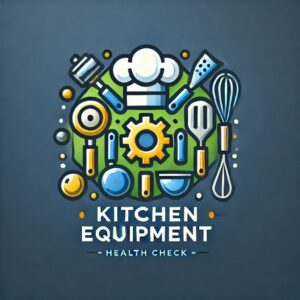“Use of cloths in the kitchen”
In professional kitchens, the use of cloths or tea towels is allowed, but their usage is regulated under strict hygiene practices to prevent cross-contamination and maintain food safety standards. The guidelines and best practices are largely influenced by the principles of HACCP (Hazard Analysis Critical Control Point) and local health regulations.
Key Considerations:Colour coding: Color Coding: Similar to the color-coding system for chopping boards, cloths and tea towels can also be color-coded to designate them for specific tasks (e.g., blue for drying clean dishes, red for wiping counters, green for handling raw foods). This helps prevent cross-contamination between cleaning surfaces and food.
Specific cloths: Specific Cloths for Specific Tasks: Use different cloths for drying hands, drying dishes, and cleaning surfaces. Never use the same cloth for different purposes without proper cleaning.
Cleaning and sanitization: Regular Washing: Cloths and tea towels must be washed at high temperatures after every service or more frequently if they become soiled. This helps eliminate bacteria and prevent the spread of germs.
Using disposable towels: Consider using disposable paper towels for certain tasks, especially those involving cleaning surfaces that have been in contact with raw meat, poultry, or seafood.
Storage: Proper Storage: Store cloths and tea towels in a clean, dry area to prevent the growth of bacteria. Ensure they are fully dried before storage. Separate Storage: Keep used and clean towels separate. Used towels should be stored in a designated container until they are washed.
Monitoring and replacement: Regular Inspections: Frequently inspect cloths and tea towels for wear and tear. Replace any that are worn out or no longer effectively cleanable.
Hygiene Audits: Include the management of cloths and tea towels in regular kitchen hygiene audits to ensure compliance with best practices.
Staff training: Train all kitchen staff on the proper use, cleaning, and storage of cloths and tea towels. Emphasize the importance of these practices in preventing foodborne illness.
Regulatory Perspective:
While specific regulations regarding cloths and tea towels may vary by jurisdiction, the general requirement across many regions, including Ireland, is that all food businesses must ensure that their operations do not lead to food contamination. This overarching requirement is supported by detailed guidelines and inspections conducted by local health authorities.
Conclusion from DINEWISE:
Best practices are crucial as they go beyond minimum legal standards to further enhance food safety, improve quality, and reduce risks. Ideally, best practices should complement legal obligations, ensuring optimal safety and quality for consumers.
Whilst paper is a convenient option it can cost a fortune. Cloths are ok but use some common sense and watch the staff !!!!
“The Smiles That Keep Them Coming Back”
Winning Hearts, One Plate at a Time









